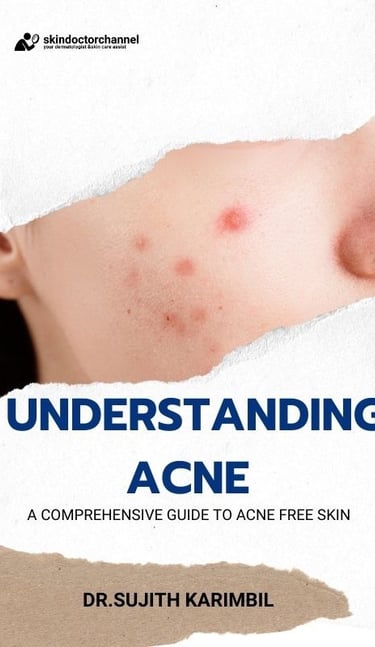Why teenagers get acne
11/27/20232 min read


Acne, a common skin condition that affects millions of teenagers worldwide, can be a source of frustration and embarrassment. While it may seem like a rite of passage for many adolescents, understanding the underlying causes and implementing preventive measures can help teenagers effectively manage and reduce the occurrence of acne. In this article, we will delve into the scientific facts behind why teenagers get acne and provide a brief plan to prevent it.
The Science Behind Teenage Acne
Acne occurs when hair follicles become clogged with oil and dead skin cells. During puberty, the body undergoes hormonal changes, specifically an increase in androgen levels. Androgens stimulate the oil glands in the skin, leading to an overproduction of sebum. The excess oil, combined with dead skin cells, can block the hair follicles, resulting in the formation of acne.
Additionally, the presence of Propionibacterium acnes, a bacterium that thrives in the oily environment of the skin, contributes to the development of acne. This bacterium triggers an immune response, leading to inflammation and the formation of red, swollen pimples.
Prevention Strategies
While it may not be possible to completely prevent acne, adopting certain habits and practices can significantly reduce its occurrence and severity:
Maintain a Consistent Skincare Routine: Cleansing the face twice a day with a mild cleanser can help remove excess oil and dirt. Avoid harsh scrubbing, as it can irritate the skin and worsen acne.
Avoid Touching the Face: Touching the face with unwashed hands can transfer bacteria and oil, exacerbating acne. Encourage teenagers to avoid picking or popping pimples, as it can lead to scarring and further inflammation.
Choose Non-Comedogenic Products: Non-comedogenic products are formulated to not clog pores. Look for this label when selecting skincare and cosmetic products.
Eat a Balanced Diet: While there is no direct link between diet and acne, consuming a healthy diet rich in fruits, vegetables, and whole grains can support overall skin health.
Manage Stress Levels: Stress can worsen acne, so encourage teenagers to engage in stress-relieving activities such as exercise, meditation, or hobbies.
Understanding the underlying causes of teenage acne empowers teenagers to take control of their skin health. By implementing a consistent skincare routine, avoiding touching the face, choosing non-comedogenic products, maintaining a balanced diet, and managing stress levels, teenagers can significantly reduce the occurrence and severity of acne.
To gain a more comprehensive understanding of acne and its management, we invite you to read the book "Understanding Acne: A Comprehensive Guide" authored by dermatologist Dr. Sujith Karimbil. This informative guide provides valuable insights and practical tips for effectively dealing with acne. You can purchase and read the book on Kindle by clicking here.
Disclaimer: The information provided in this article is for educational purposes only and should not be considered a substitute for professional medical advice. Consult a dermatologist or healthcare provider for personalized guidance.


